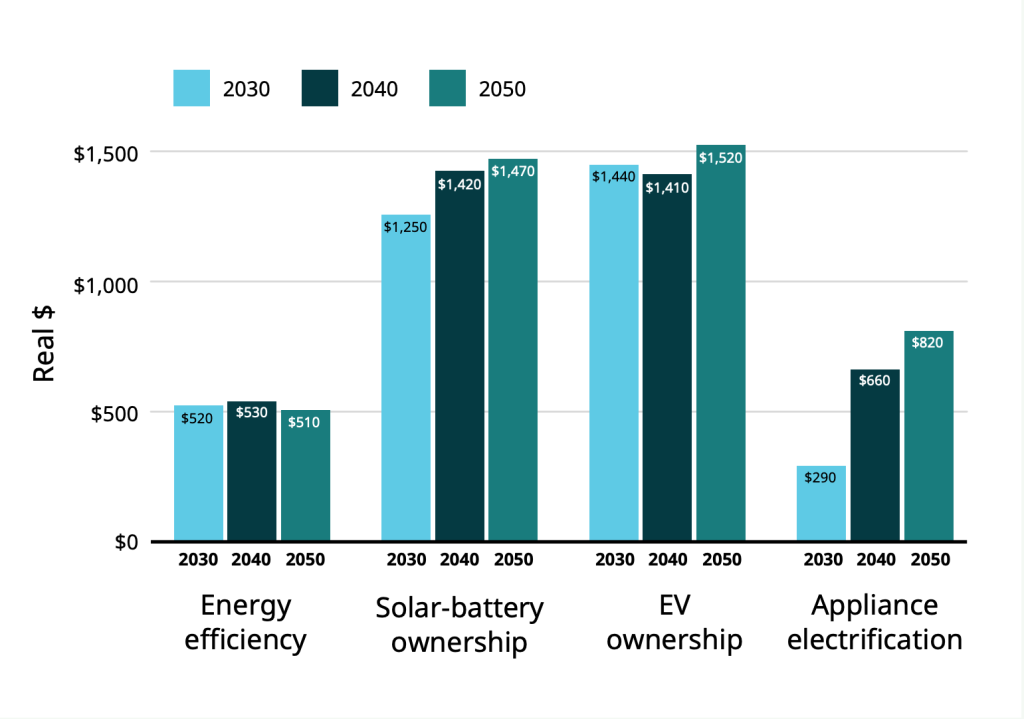Households save with shift from fossil fuel energy sources


A new government plan details how the nation will lower power bills and achieve climate targets.
The federal government is touting lower electricity bills for households as part of efforts to achieve Australia’s net zero targets, according to a new strategy that maps out future demand.
Published Friday, the National Energy Performance Strategy outlines a huge increase in power demand in coming decades as the nation switches from fossil fuels to electric with renewables.
But even as families and businesses use more electricity, the Minister for Climate Change and Energy Chris Bowen said bills should be lower as households become much more energy efficient.
“We want more Australians to have the choice to save on energy and save on bills, and this strategy, along with our large investments’ energy saving upgrades for households and businesses across the country, does just that,” Bowen said on Friday.
“Australia has a clear-cut plan to drive action on the demand-side of the energy market to support the economy-wide energy transformation and help put downward pressure on energy bills.”
Electric savings
The federal government cited estimates in its strategy that project thousands of dollars a year in savings over the coming decades to 2050 through moving to electric appliances and vehicles.
EV ownership alone is expected to save a household about $1400 a year from 2030 onwards.
This graph details how much families are projected to save.

Source: Energy strategy.
But electrifying the nation is not going to be easy, with separate research showing that millions of families face barriers to ditch fossil fuel use – particularly renters and low-income households.
The Grattan Institute has suggested even more drastic measures, including a deadline for when households should be prevented from installing gas appliances, with warnings that emissions targets might be missed.
The government has not gone that far, but its strategy does map out a series of policy commitments to ease the transition, including empowering renters through new efficiency standards on existing properties, and billions in funding for subsidies aimed at households.
The idea is that households will move to electric appliances to save money on their utility bills, so long as they’re given enough help to deal with the upfront cost barriers, which can be thousands.
“Much of the opportunity for energy performance improvement lies in retrofitting existing homes,” the strategy states.
“Most of Australia’s 10.9 million dwellings were built before minimum energy efficiency standards were introduced for houses in 2003, and for apartment buildings in 2005.
“A lack of simple, consistent and reliable information about energy performance upgrades, and business capacity to deliver these upgrades are holding back retrofits that would benefit the public.”
Rooftop solar is key
Rooftop solar will be a key part of the puzzle, with Australia leading the world in rates of uptake of the technology, particularly as demands on the power grid grow over coming decades.
The government says more than a $100 million will be invested in community solar projects that will allow at least 25,000 households initially to access their own solar panels.
“Careful co-ordination of the changes to the demand-side of our energy system can make this transformation quicker, cheaper, and easier,” the strategy states.
“Reductions in peak aggregate demand can reduce the need to build additional utility-scale electricity generation, allowing us to also minimise the cost and impact on communities of new network and distribution assets.”








